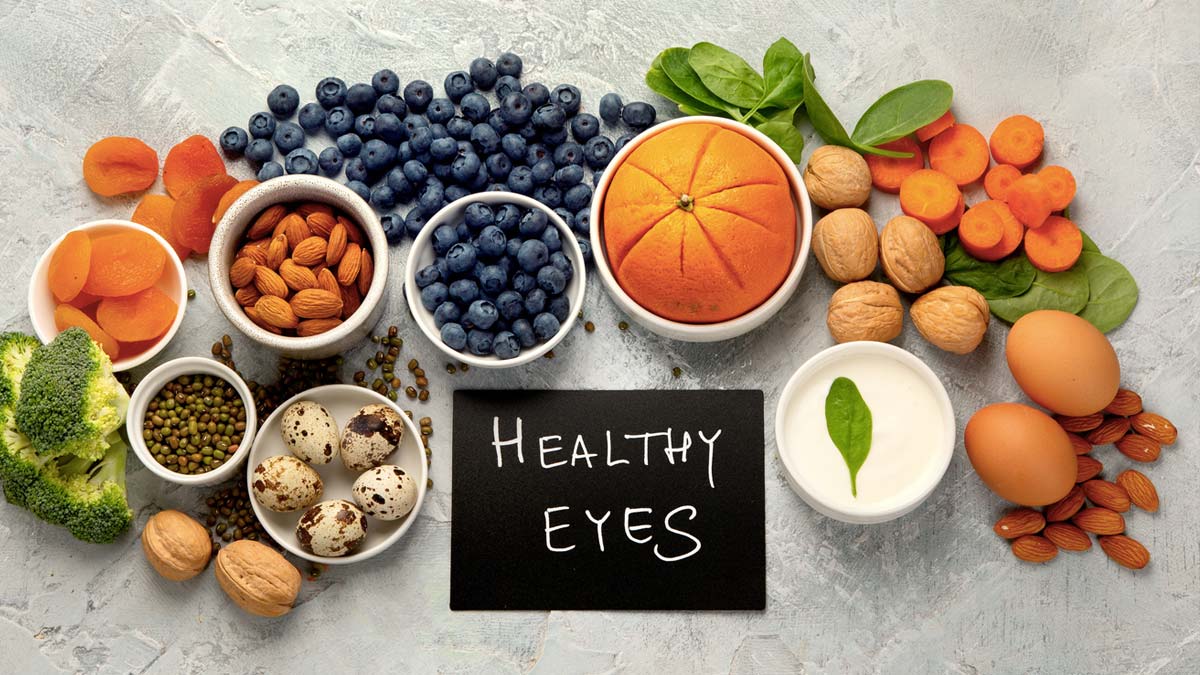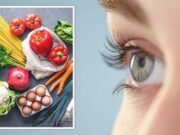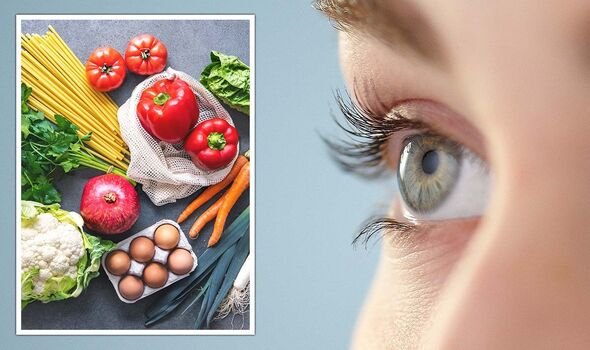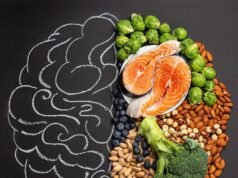Best Foods for Eye Health: A Complete Review Guide to Protect and Improve Your Vision
Your eyes are one of the most important organs in your body, yet they are often overlooked until problems appear. With the rise of digital screen time, poor diet, and aging, eye-related issues like dry eyes, blurred vision, and macular degeneration are becoming increasingly common. Fortunately, the right foods can play a big role in maintaining healthy vision and even slowing down age-related eye diseases.
In this comprehensive review-style guide, we’ll explore the top eye health foods, why they work, the nutrients behind them, and how you can add them to your daily diet.
:max_bytes(150000):strip_icc()/fall-foods-for-eyes-GettyImages-1367213914-76ed7a7e17094e5b9f4b8f309824df0d.jpg)
Why Food Matters for Eye Health
Your eyes rely on vitamins, minerals, antioxidants, and fatty acids to function properly. Nutrients like Vitamin A, Vitamin C, Vitamin E, Omega-3 fatty acids, Zinc, and Lutein help protect the eyes from oxidative stress, dryness, and long-term damage. Studies suggest that a balanced diet rich in these compounds can reduce the risk of cataracts, glaucoma, and age-related macular degeneration (AMD).
Instead of relying only on supplements, natural foods provide these nutrients in their most bioavailable form, making them more effective.
1. Carrots – The Classic Eye Food
Carrots have earned their reputation as the go-to eye health food because they are packed with beta-carotene, a type of Vitamin A that helps maintain clear vision.
Benefits:
- Supports the cornea, the outer surface of the eye.
- Prevents night blindness.
- Rich in antioxidants that fight free radicals.
How to Eat:
Enjoy raw carrots as snacks, add them to salads, or make carrot juice.
2. Leafy Greens – Lutein and Zeaxanthin Powerhouses
Vegetables like spinach, kale, and collard greens are loaded with lutein and zeaxanthin, antioxidants that protect the retina.
Benefits:
- Reduce risk of age-related macular degeneration.
- Filter harmful blue light from screens.
- Promote long-term eye health.
How to Eat:
Add leafy greens to smoothies, sauté them with garlic, or make kale chips for a crunchy snack.
3. Fatty Fish – Omega-3 Boost
Salmon, tuna, mackerel, and sardines are rich in omega-3 fatty acids, which are essential for the retina.
Benefits:
- Reduce symptoms of dry eye syndrome.
- Support proper drainage of intraocular fluid (reducing glaucoma risk).
- Improve tear production and eye moisture.
How to Eat:
Enjoy grilled salmon, tuna sandwiches, or sardines with olive oil.

4. Eggs – A Nutrient-Rich Superfood
Egg yolks are another excellent source of lutein and zeaxanthin, along with zinc which is vital for maintaining retinal health.
Benefits:
- Protect against night blindness.
- Provide Vitamin D for overall eye function.
- Easy to digest and versatile in meals.
How to Eat:
Include boiled eggs in breakfast, scrambled eggs, or add them to salads.
5. Citrus Fruits – Vitamin C Protectors
Oranges, lemons, grapefruits, and limes are loaded with Vitamin C, one of the most powerful antioxidants for eye health.
Benefits:
- Strengthens blood vessels in the eyes.
- Reduces the risk of cataracts.
- Boosts immunity and prevents infections.
How to Eat:
Drink fresh orange juice, snack on mandarins, or add lemon to water.
6. Nuts and Seeds – Vitamin E Sources
Almonds, walnuts, flaxseeds, chia seeds, and sunflower seeds are great for eye health.
Benefits:
- Vitamin E protects eyes from oxidative damage.
- Rich in omega-3s, helping prevent dry eyes.
- Improve circulation to the eyes.
How to Eat:
Snack on almonds, add chia seeds to smoothies, or sprinkle flaxseeds over salads.
7. Sweet Potatoes – Vision-Friendly Alternative
Like carrots, sweet potatoes are rich in beta-carotene and Vitamin E.
Benefits:
- Support overall eye surface health.
- Prevent dryness.
- Strengthen night vision.
How to Eat:
Bake them, mash them, or make sweet potato fries.
8. Berries – Antioxidant Boosters
Blueberries, strawberries, and blackberries are packed with anthocyanins, compounds that support eye blood vessels.
Benefits:
- Reduce eye fatigue (especially from screen use).
- Improve circulation to the retina.
- Slow down age-related eye diseases.
How to Eat:
Add them to yogurt, oatmeal, or smoothies.
9. Beans and Legumes – Zinc-Rich Choices
Kidney beans, lentils, and chickpeas are excellent vegetarian sources of zinc, a mineral essential for eye function.
Benefits:
- Helps transport Vitamin A from the liver to the retina.
- Supports melanin production, which protects the eyes.
- Reduces the risk of macular degeneration.
How to Eat:
Make bean salads, lentil soups, or hummus spreads.
10. Whole Grains – Low Glycemic Benefits
Brown rice, oats, quinoa, and whole wheat are good for maintaining healthy vision.
Benefits:
- Reduce risk of AMD (Age-related Macular Degeneration).
- Provide zinc, niacin, and Vitamin E.
- Keep blood sugar stable (important since high sugar levels can harm eye health).
How to Eat:
Swap white bread for whole-grain bread, use quinoa as a side dish, or have oatmeal for breakfast.
Practical Tips for a Vision-Friendly Diet
- Stay Hydrated – Drink enough water to prevent dry eyes.
- Reduce Processed Foods – Avoid excessive sugar and fried foods as they damage eye blood vessels.
- Eat the Rainbow – A colorful diet ensures you get all the essential nutrients.
- Balance Omega-3 and Omega-6 – Too much omega-6 (from junk food oils) can counter omega-3 benefits.
- Limit Alcohol and Smoking – Both increase oxidative stress and accelerate vision loss.
Final Thoughts
Your diet plays a critical role in eye health. While glasses, contact lenses, and medical treatments are essential when needed, prevention is always better than cure. By regularly consuming foods rich in Vitamins A, C, E, lutein, zeaxanthin, zinc, and omega-3 fatty acids, you can keep your vision sharp, reduce the risk of serious eye diseases, and maintain overall well-being.
So the next time you plan your grocery list, don’t forget to add these eye-friendly superfoods. Your eyes will thank you for years to come!























